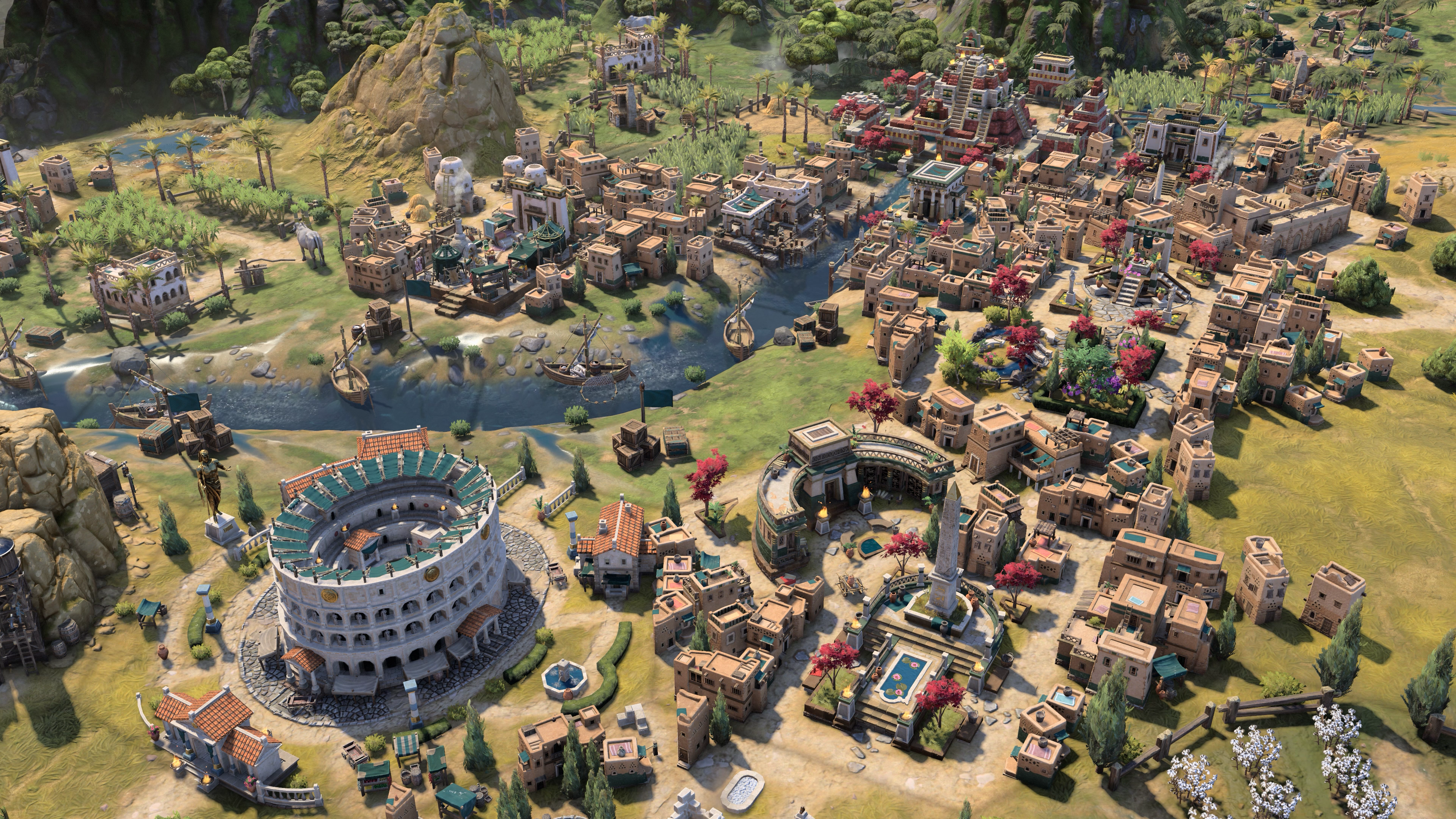Tom's Guide Verdict
Civilization VII is just as habit-forming as its predecessors, and sports the same excellent core design alongside some outstanding new ideas. But these struggle to make themselves known among clunky changes that simplify its trademark complex gameplay for the worse.
Pros
- +
Beautiful visual, aural design
- +
A handful of excellent innovations
- +
Same addictive Civ formula
Cons
- -
Lots of downgraded mechanics
- -
Ages system feels half-baked
- -
Poorly redesigned diplomacy system
- -
Awkward changes to civilization and leader choices
Why you can trust Tom's Guide
Platforms: PC (reviewed), Nintendo Switch, PS4, PS5, Xbox One, Xbox Series X
Price: $69 / £59 / AU$119
Release Date: February 11, 2025
Genre: Strategy
If it sometimes takes one step back for every two steps forward, human civilization has never slowed down. Neither has Sid Meier and Firaxis’s strategy series Civilization, which for nearly 34 years, has entranced, addicted, and many times tormented millions with its unique spins on world exploration and conquest. And the newest chapter, Civilization VII, at first appears to be no different. Once you start playing, good luck stopping.
Yet beneath that scintillating outer layer of technological research, city construction, resource management, and military campaigning, something is amiss in this seventh mainline installment. For all its creativity and technical polish, Civilization VII is oddly empty. Dogged with questionable new gameplay elements, confusing interface tweaks, and a bewildering aspiration toward smallness, it fails to intoxicate and delivers what is, at best, an intermittent buzz.
Civilization VII: The Basics
- What is it? A turn-based strategy game based on the 4X model of explore, expand, exploit, and exterminate, where your goal is to create an empire that will eventually span the globe and conquer anyone who gets in your way.
- Who is it for? Fans of the long-running series will want to see how this chapter measures up to what’s come before, but it has the potential to appeal to anyone who likes strategy games.
- What’s the price? The Standard Edition costs $69. The $99 Deluxe Edition gives you a selection of additional civilizations, leaders, and leader personas, as well as other cosmetics packs and access to the Crossroads of the World Collection expansion (due March 2025). The Founders Edition ($129.99) adds two more leader personas and a cosmetics pack, plus the Right to Rule Collection (September 2025).
- What other games has the developer made? Firaxis has developed every Civilization game since III, in addition to Sid Meier’s Alpha Centauri, the XCOM series and a selection of other sim and turn-based tactics titles.
- What games is this similar to? It’s more than a little like the six previous mainline Civilization games, plus an uncountable number of other world-building strategy titles that have, in no small part, been inspired by the Civilization series.
The cradle of civilization
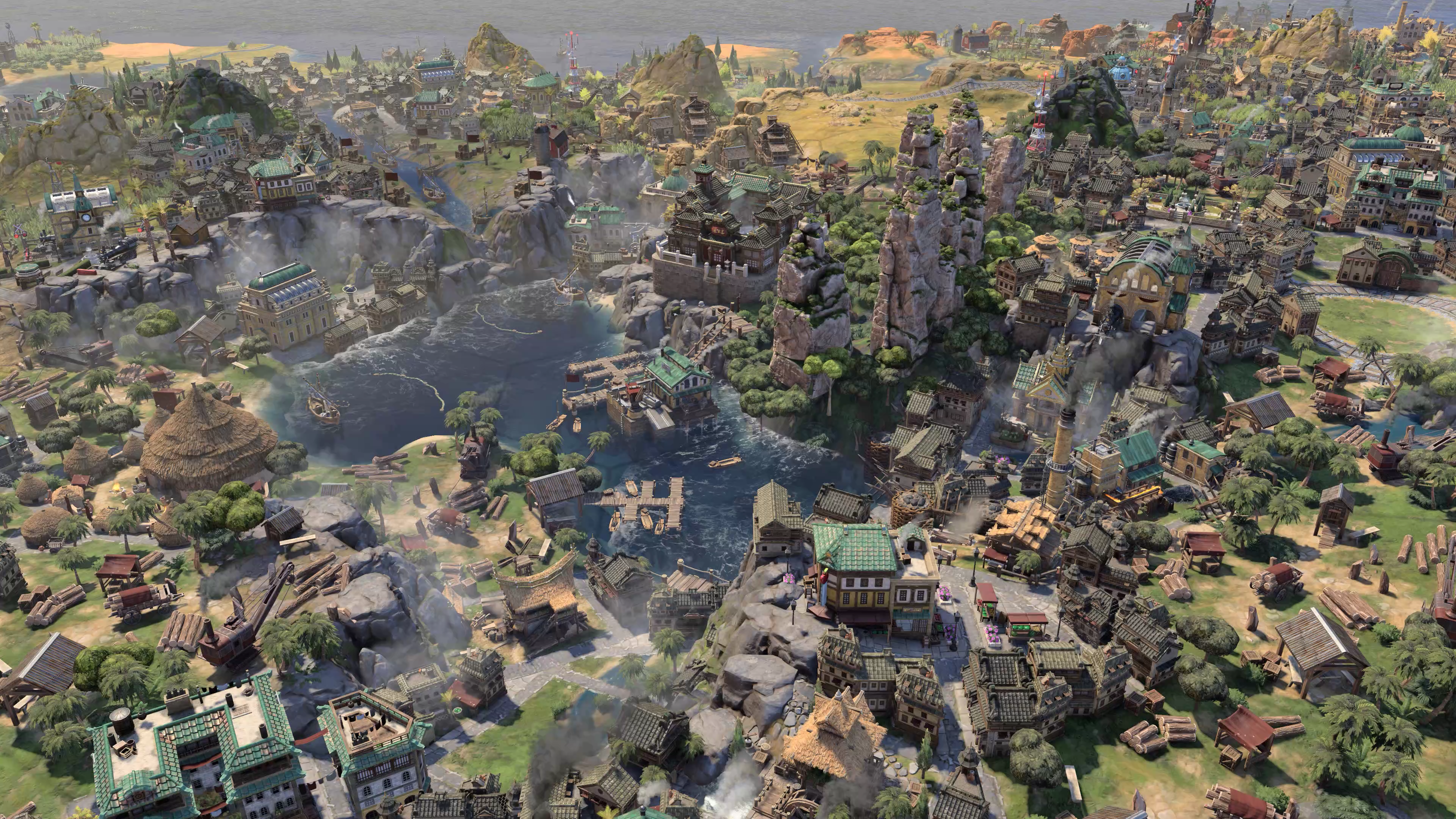
In case the premise of this most enduring of strategy titles really needs explaining, here goes. As leader of an at-first primitive tribe, you must guide your people from a nomadic existence to one of teeming cities, electrifying technological and civic advancements, and globe-spanning power over several thousand years. Become the most influential society in the world, whether by smothering all competitors with scientific achievement, cultural supremacy, or military might, and you win. Fail, and you become a footnote to history.
This particular blend of domestic management, international intrigue, and cutthroat competition works from every angle. Whether building cities, organizing them, or invading them, or expanding your reach with new technologies and social civics, constructing buildings or World Wonders, or racing to be the first to make humans into spacefarers, it’s an exciting, no-holds-barred competition that tests your ability to think gargantuan and microscopic, on multiple fronts, all at once.
Showing its Age(s)
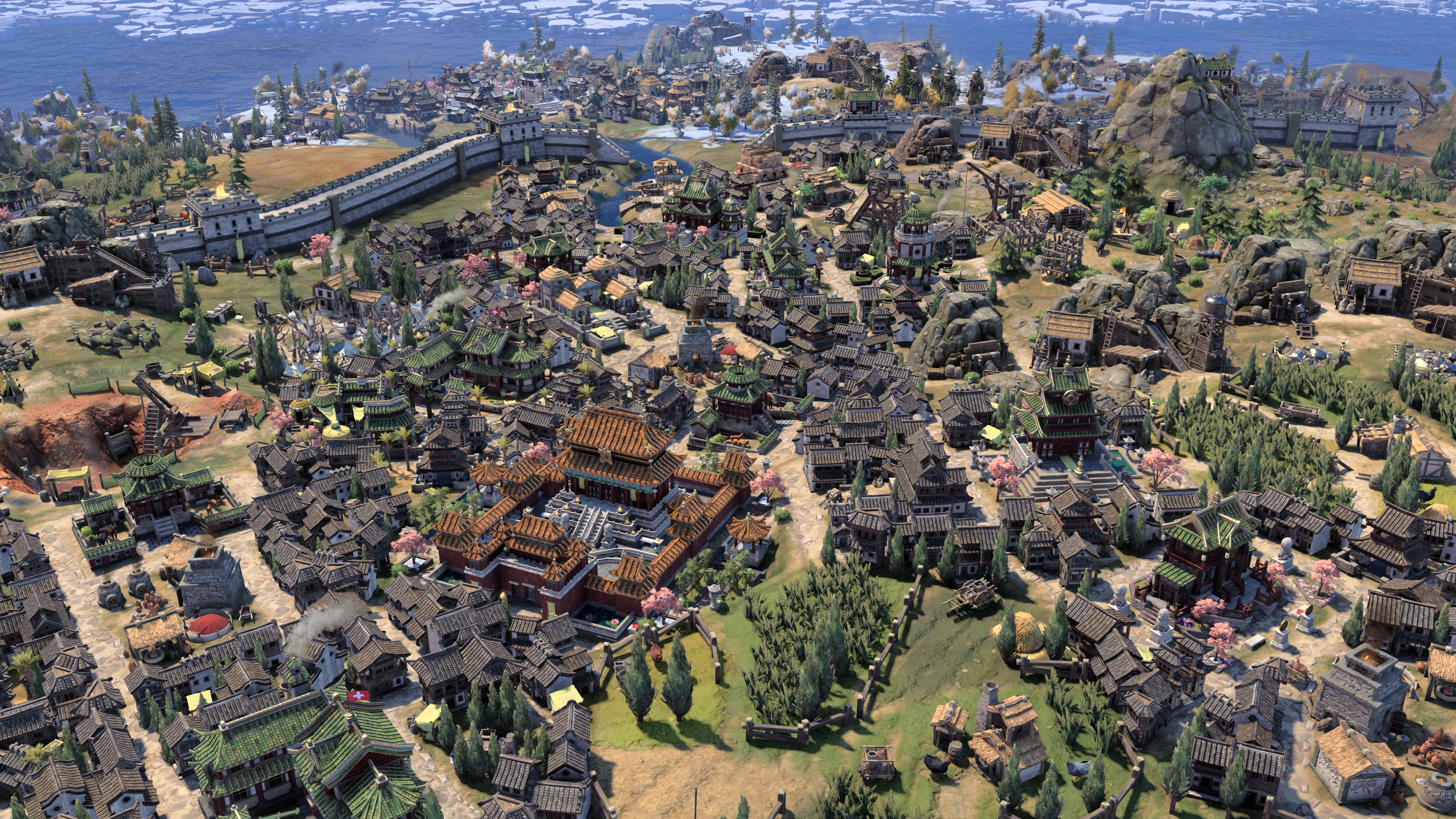
Civilization VII does the unthinkable and upends one of the series’s most enduring precepts. Instead of a single, relentless timeline, this game divides play into three distinct chapters, or Ages: Antiquity (when civilizations are established), Exploration (when they grow), and Modern (where they transform).
It’s not a bad idea. But this ultimately makes the usually satiny gameplay disjointed by preventing anything from building organically. Caps on the number of settlements you can found and the technologies and civics you can research feel like artificial barriers designed to enable the ages, not their natural outgrowth. If I want to put everything into research to beat everyone else to outer space, break ground on cities in new continents in early Antiquity, or wage religious wars in the Modern Age, what’s wrong with that?
Such questions are left unanswered, but Civilization has always thrived on this kind of freedom. In my nearly 60 hours with Civilization VII, the samey, rote Ages I had to sit through time and time again never convinced me they were worth my losing the ability to play the game the way I wanted instead of the way the developers do.
Get instant access to breaking news, the hottest reviews, great deals and helpful tips.
World at war
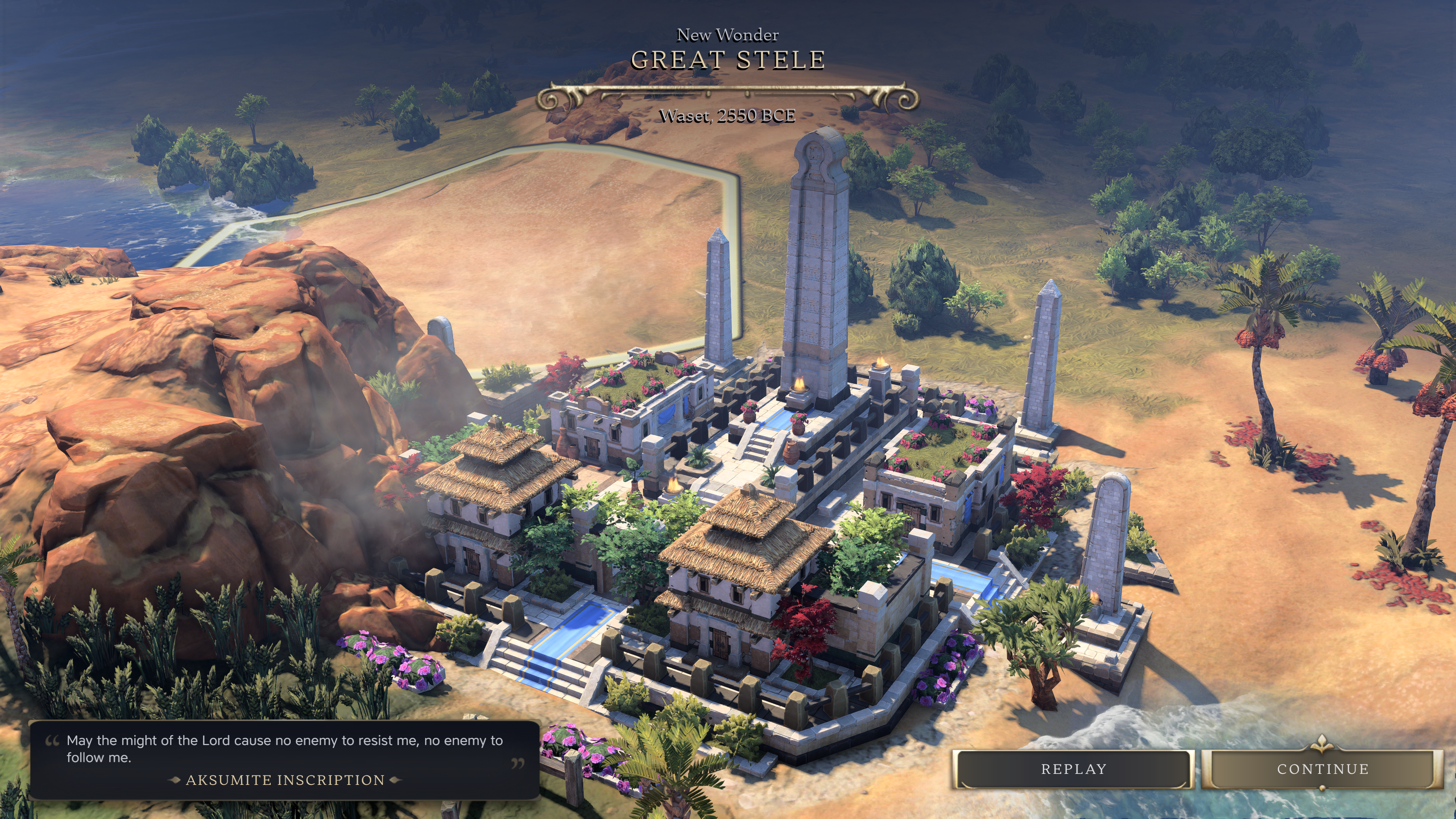
This control also manifests itself in other ways. Antiquity and Exploration climax in new Crisis Events, a series of bland narrative text boxes with little scope beyond requiring you to temporarily adopt a lengthy series of self-kneecapping social policies and usher in a new era on a wave of strife. The new diplomacy system reduces all inter-civ actions to an exchange of a new currency called Influence, which makes negotiating numbing. If I didn’t have enough Influence to buy friendship or reject unreasonable demands, I was soon plunged into war, whether I wanted it or not.
Civilization V and VI both had serious issues with fragile leaders initiating baffling wars, but VII takes it to a whole new level: Nineteen games out of 20 ended with everyone ganging up on me. (Wars also invariably started allying with any computer player, which taught me quickly to not bother.) Want to try to end a war? You can only do so by giving away settlements, which is a huge step down from the complex bargaining possibilities in other games.
Take me to your leader
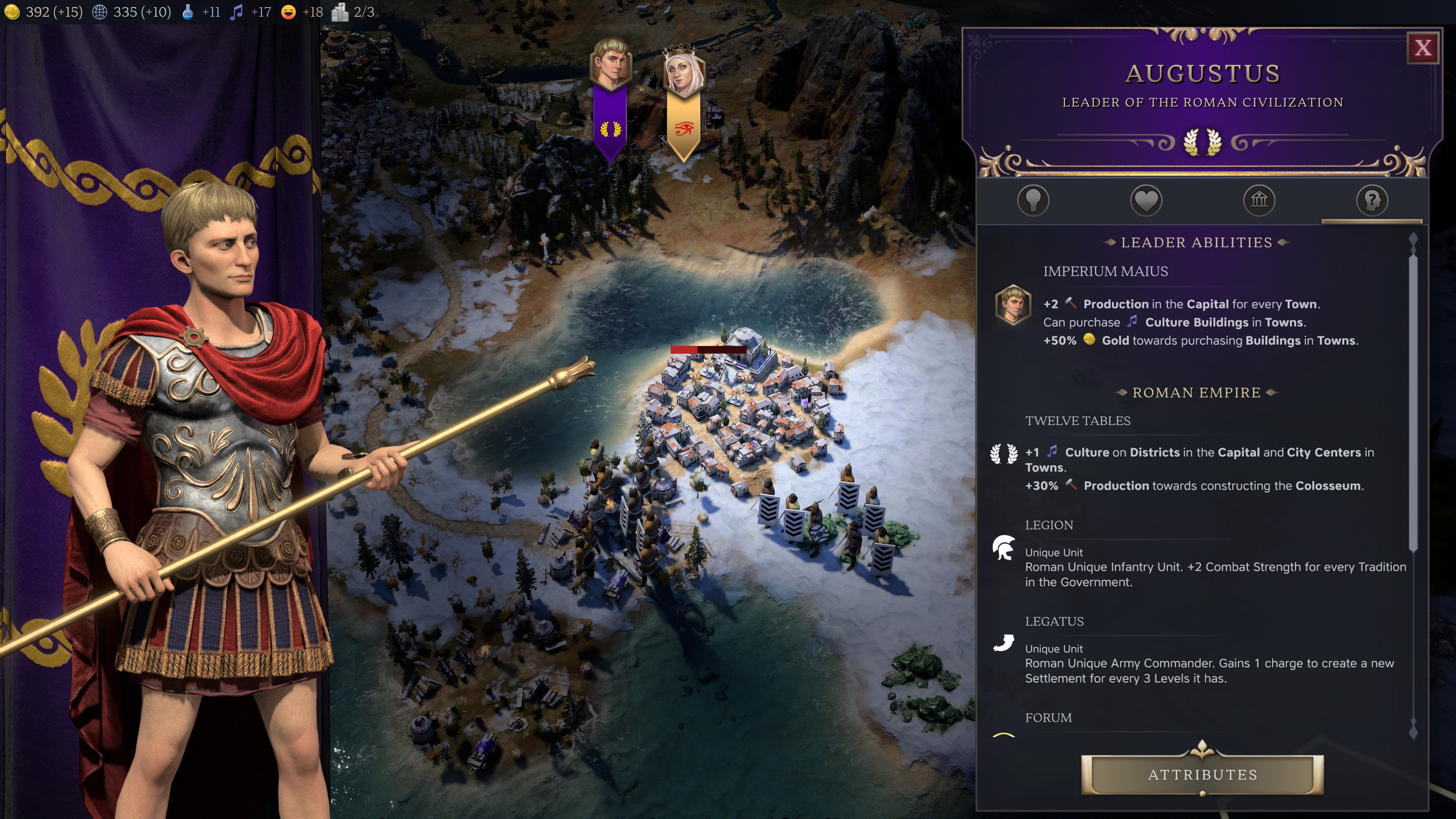
Related to the Ages are the new leader and civilization mechanics, which have their own problems. Each has its own combination of benefits, emerging from leader traits or special items no other civ can build. But it’s not quite so grand anymore. The selection of leaders is narrow and uninspiring (rest assured, forthcoming DLC will let you buy more!), in part because so many choices fell short of reaching legendary status. Ashoka, Augustus, Catherine the Great, Charlemagne, and Hatshepsut belong here; I’m less convinced that Confucius, Machiavelli, José Rizal, Harriet Tubman, or even Benjamin Franklin make as much sense.
Although the leaders last the whole game, you must pick a new civilization at the start of every Age. Again, a fine concept that reinforces how societies evolve over time. But being allowed to select only from only a few choices (unless you unlock more in the preceding age) imposes more synthetic limitations that it seems even the creators sometimes struggle to justify. (The explanation that “Harriet Tubman’s ancestors came from the same continent as Aksum” doesn’t exactly thrill me with historical vividity.)
What’s worse is that this choice, for all its fanfare, doesn’t make an earth-moving difference. Aside from some architectural and unit changes, direct impact is minimal. Ironically, previous Civilizations better presented this full arc: A single, smooth progression from the Stone Age to the Information Age teaches you more than roundabouts that force you into directions you may not need or want to travel.
Mass effect

Plenty of other frustrations have a distinct “first draft” air too. Including two types of settlements, cities and towns, where the primary difference is that the latter need you to buy all improvements, which works better in theory than in practice. Tech and civic trees have been pruned heavily, leaving less complex relationships and boring, linear dependencies. Your choice of government used to affect nearly everything you did; here it’s an afterthought, with each option offering only short-term benefits once certain happiness conditions are met.
As much as I hate to say it, a lot just seems dumbed down. Maps are smaller. Tile improvements and roads are more heavily automated than before, giving you less control over how your civilization looks and works, whereas auto-move for units has been eliminated so you have to spend more time micromanaging other things. City specialists are now one-size-fits-all district additions, not a critical component of city success. It’s odd, but your civilization never registers as completely yours.
Golden age
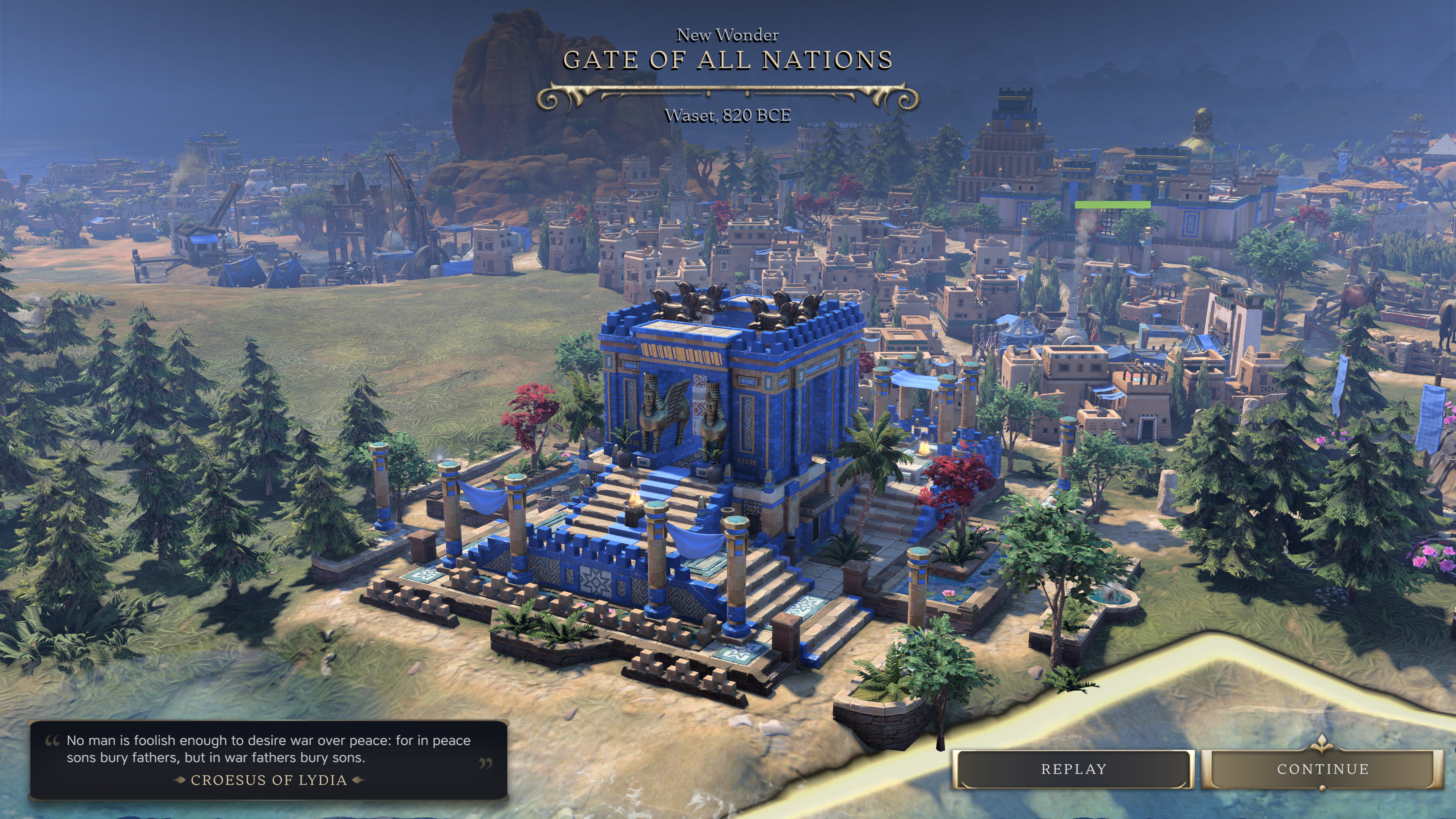
Despite all this, there are also a lot of genuine improvements and smart additions. Except for the cringe-worthy leader portraits on the Diplomacy screen, the graphics are intricately detailed and beautifully rendered, with each civilization fresh and unique in appearance. The sound and music further amp up the atmosphere, from the sounds of clashing armies to the title tune, “Live Gloriously,” by Christopher Tin (who composed the acclaimed “Baba Yetu” for Civilization IV), and British actress Gwendoline Christie narrates with crisp, slightly mysterious authority.
Resources are more dynamic now, bringing bonuses to the settlements where they’re assigned. The addition of double research options (or Mastery) to some techs and civics enhances their importance with a minimum of fuss. And ship movement has been significantly improved. You can now navigate many inland rivers and move through ocean squares with inappropriately underpowered vessels that will suffer damage as a result. In addition to the on-land discoveries that grant helpful bonuses early on, the Exploration Age introduces shipwrecks to do the same on the water.
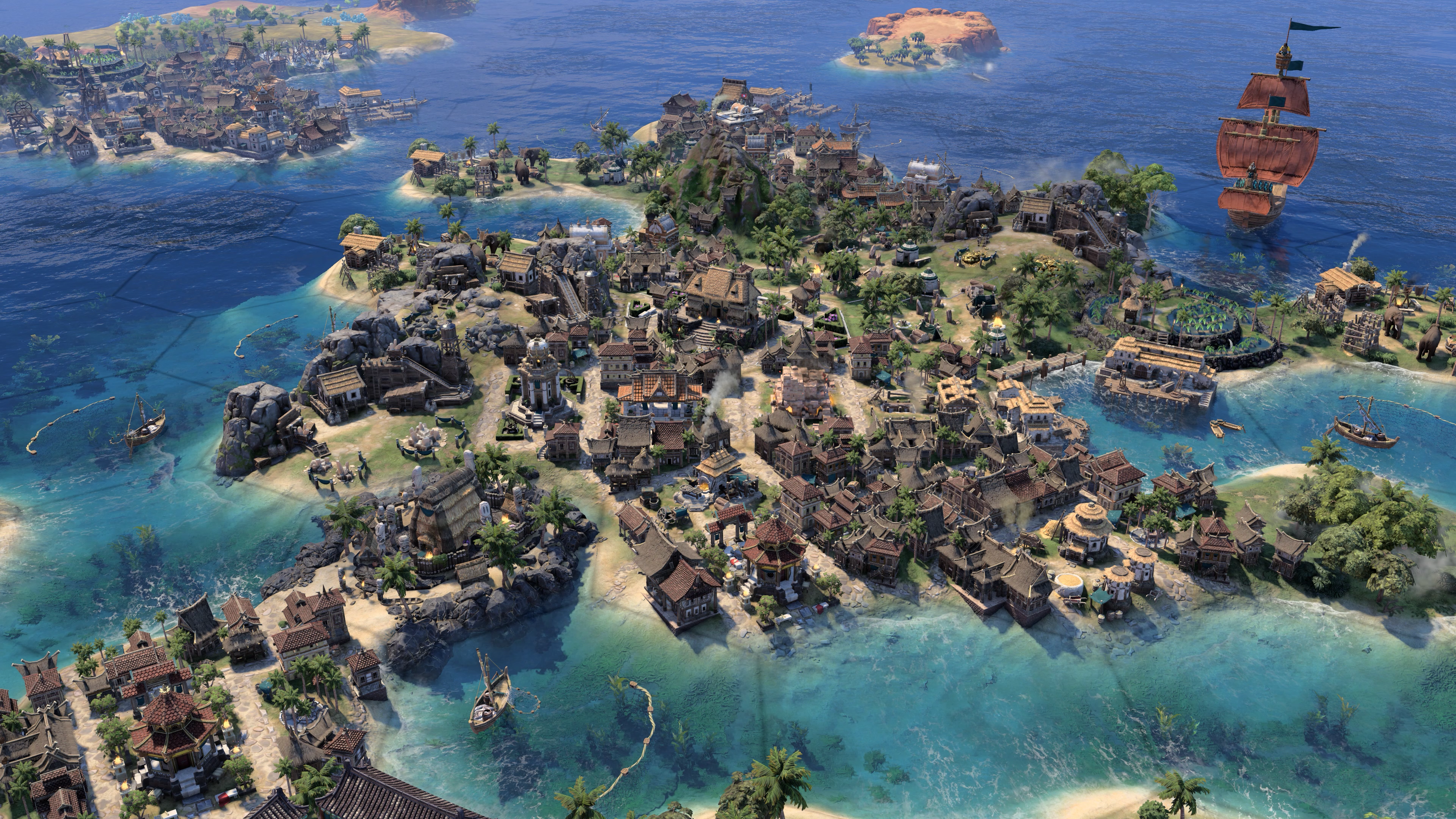
I didn’t like every narrative event (mostly binary choices that grant you a handful of resources), but those that told identifiable, continuing stories over many turns injected some much-appreciated surprise and continuity. Also intriguing are Legacy Paths, sweeping, interlocking Age-long quests that are easy to understand and difficult to complete, yet always satisfying and somehow low-impact.
Mementos (permanent buffs you collect from each leader and can assign to anyone in any game) and leader attributes (which boost cultural, militaristic, and scientific play, and more) provide a variety of ways to spice up playthroughs. And Civ-specific units, civics, and quarters (formed by building two related improvements on a single tile) allow more fully realized customization of each civilization than ever.
Civilization VII: Verdict
Finally, it can’t be overstated: Civilization VII is still Civilization. The series that made “One More Turn” not just a motto but an ethos that remains highly compelling. It almost doesn’t matter if a few things (or a few dozen things) don’t work. You can’t stop coming back to it, even when it falls short of the greatness to which it aspires.
Because that’s just as true of real-world civilizations, it’s tempting to want to give Civilization VII a break. Faced with the nigh-impossible task of forging a new path with such a storied history behind it, it was always going to face an uphill struggle. And there’s a lot it gets right. But whether you’re a long-time fan or a new convert, it’s hard not to wish this version didn’t so often take two steps back for every one step forward.
Matthew Murray is the head of testing for Future, coordinating and conducting product testing at Tom’s Guide and other Future publications. He has previously covered technology and performance arts for multiple publications, edited numerous books, and worked as a theatre critic for more than 16 years.
